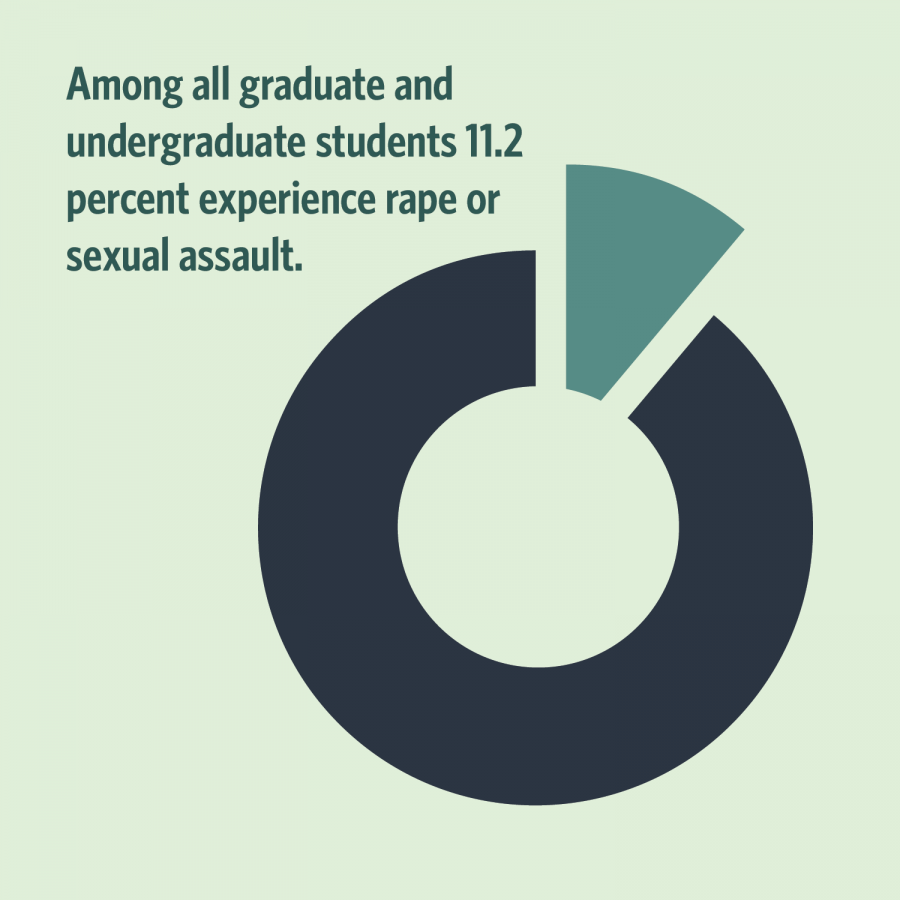Title IX changes impact University students
Source: RAINN
Feb 20, 2019
The recent Title IX changes proposed by the U.S. Secretary of Education, Betsy DeVos, have critical implications to how sexual assault cases will be handled by universities across the country. The changes are controversial and have been extensively commented upon by concerned citizens online.
Title IX of the Education Amendments Act of 1972 is a federal law which prohibits discrimination on the basis of sex in any federally funded education program or activity. Policies regarding sexual harassment and violence are also made under Title IX.
Adelaide Aime, executive director of RACES — Rape Advocacy, Counseling & Education Services — described how these new changes would affect the survivors.
One of the changes that would affect the college student population is the one that limits the school’s responsibility and liability. Under the new changes, the school would only be responsible for incidents that take place directly on campus or within school-sponsored programs or activities.
“Our counselors will help people through their frustration at the system because as proposed, the system and the changes are very much going to negatively impact people who have just been traumatized,” Aime said.
Get The Daily Illini in your inbox!
A large population of University students live in apartments, and incidents do not always take place on school grounds.
“A lot of the incidents happen off campus so if that is not covered anymore, that will really affect the student population,” said Sudarshana Rao, vice president of Students Against Sexual Assault and junior in LAS.
Another change proposed guarantees the accused the right to cross-examine the accuser and this would be done by the parties’ advisers.
“We know from what survivors tell us that if the actual accused perpetrator got to cross-examine, that would bring the whole process to a halt,” Aime said. “I think realistically what they’re thinking is that a lawyer of the alleged perpetrator would do the cross-examination. That is going to be completely re-traumatizing for the survivors.”
Aime stresses that while RACES will continue to offer support to survivors, the process could now potentially be more traumatic.
“We have advocates that assist any person who has experienced sexual assault or may have been affected by it, including college students,” Aime said. “When we are assisting college students through the Title IX process, the student’s experience is going to be negatively impacted if the proposed changes go through. We will attempt to help them through that, so our services won’t change, but the survivor’s experience is going to be very different.”
Rao said much of student body is not aware of these changes that can directly affect them if an assault were to occur.
“A lot of people didn’t know what was happening. So a part of what SASA did was holding workshops and trying to spread awareness of what was going on,” Rao said. “When I would actually tell people, people would be like ‘Oh no, that’s really bad’, but people didn’t really know about it at all.”
RACES, which works with the whole campus community, found that many people were not aware of these changes. Due to a lack of publicity, only experts have been well-informed on the proposed changes.
Rao says these Title IX changes can threaten feelings of safety for survivors. Although there are mandatory workshops and information sessions to spread sexual assault awareness, there is not a cohesive campus-wide conversation.
“Someone you know or someone close to them has probably experienced sexual violence,” Rao said. “It is important that everyone is well-versed, especially because this topic is so common and you probably already know someone who has been affected, since it is unfortunately so common on college campuses.”






